The Burrow
They say life is a highway and while electric vehicles (EVs) are already revolutionising the motor industry, many drivers are stalling when it comes to embracing this new car technology.
But just who is putting the pedal to the metal when it comes to EVs and what are the biggest roadblocks for some drivers?
Car insurance comparison website Compare the Market surveyed more than 3,000 adults across Australia, America, and Canada to understand their preferences for new vehicles.
Some key statistics stood out in our research:
To get things rolling, here’s a top-level view of what each nation indicated they would be willing to pay for each type of vehicle, assuming the brand and model were similar for each.
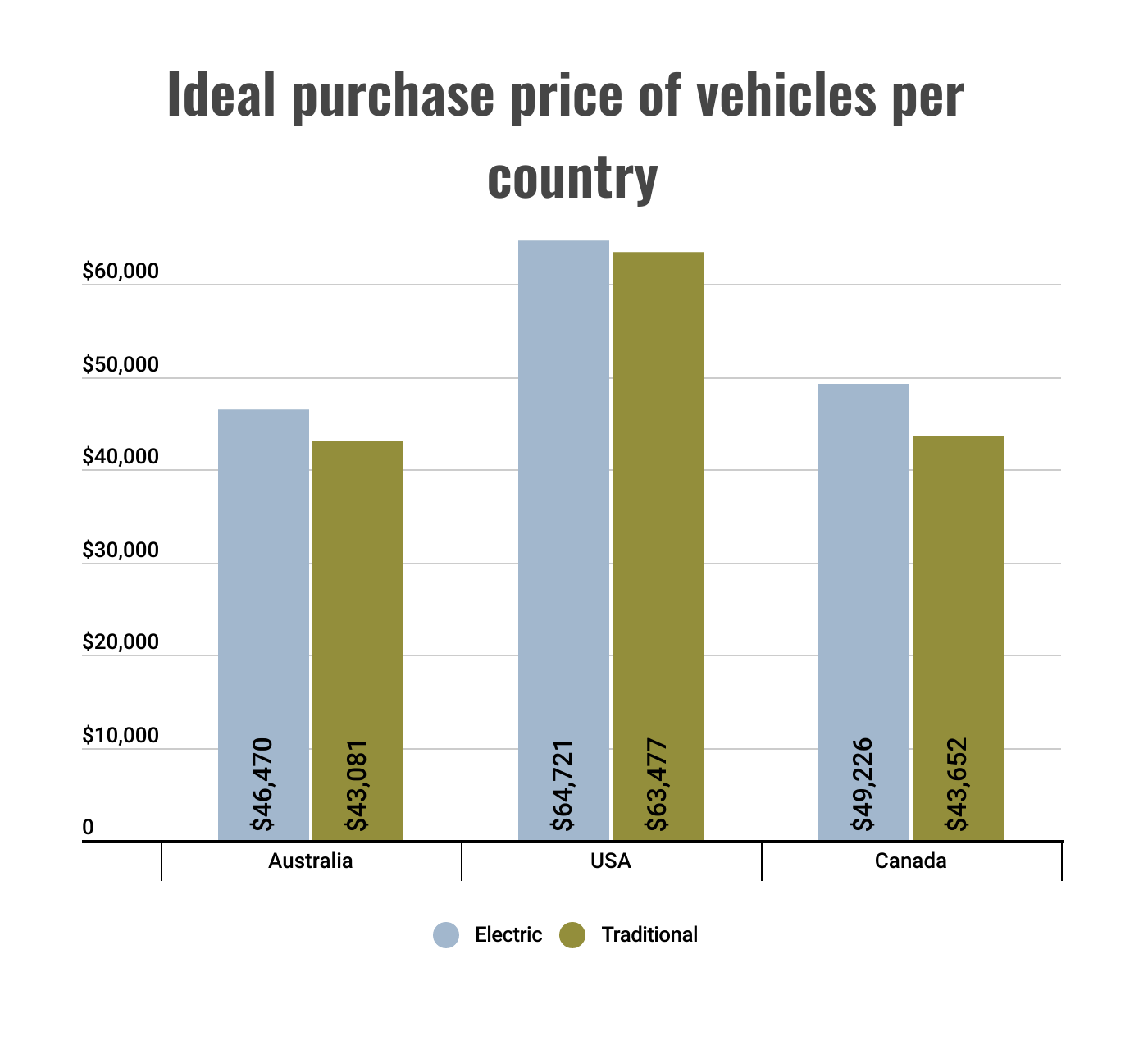
We also explored the data at a national level. Read on to find out how preferences varied in each country below.
If an electric vehicle and a traditional (petrol/diesel) car of the same model were sold at the same price, which would Aussies choose to purchase?
Just over half of Australian respondents (51.9%) said they’d prefer an EV, compared to 35.7% who said they’d still favour a traditional petrol or diesel vehicle. Around 1 in 10 drivers (12.4%) don’t have a preference either way.
While a marginal difference, it seems as though a preference for EVs in Australia is increasing. Compared to similar research conducted by Compare the Market in 2022, 2.36% more Australian drivers would now opt for an EV, while preference for traditional models dipped by 1.38%.
While EVs have historically been much more expensive than traditional vehicles in Australia, the latest data shows that Aussies would pay around the same price for each type of vehicle. In fact, the average price Australians think we should pay for an EV is AU$46,470, vs AU$43,081 for a traditional car. That’s a difference of just AU$3,389. As EVs become cheaper and more available, we expect the price to drop significantly over time.
People between 35 and 44 are the age group most likely to opt for an EV if price wasn’t a factor (at a rate of 58.1%), compared to just 40% of Gen Zers.
Perhaps surprisingly, Aussie Zoomers are the most likely to opt for traditional vehicles (44.3%) or have no preference around the type of vehicle they’d purchase. Men are nearly 8% more likely than women to desire EVs (55.8% vs 48.2% of women).
As for reasons why EVs aren’t more popular, Australians listed charging availability, battery life and replacement costs as they key reasons why they wouldn’t make the switch to electric. In fact, as many as two-thirds of Australians (62%) are worried about charging and battery life.
Around one in three Australians (29.6%) worry that EVs are more expensive to insure, while 22.9% believe there are safety concerns with the new-age vehicles.
The data also shows that:
Even if cost wasn’t a barrier, one in two Americans say they’d choose a petrol or diesel model of a car over an EV equivalent.
Almost 40% (39.7%) of the population would opt for an EV, while 9% have no preference. Compared to last year, the preference for EVs in America has grown from 33.8%, while traditional cars’ popularity remains largely unchanged.
Despite having less preference for them, drivers in the United States are more willing than those in Australia and Canada to pay more for an EV. On average, US drivers would be prepared to pay AU$64,721 (US$43,976), which is AU$18,251 more than the average for Australia, and AU$15,495 more than Canadians.
Perhaps unsurprisingly, American Baby Boomers are the generation most likely to prefer a traditional petrol or diesel car (70.8%), while Millennials aged between 25 and 34 are most likely to prefer EVs (65.1%). Meanwhile, the generational middle child Gen X is the generation most likely to have no preference either way.
Men are nearly 8% more likely than women to desire EVs (55.8% vs 48.2% of women).
Nearly two-thirds of Americans (59.3%) say the battery life and replacement cost is the biggest barrier to going electric, which has increased slightly from 56.4% last October.
Around half of Americans are concerned about the availability of EV chargers, the driving range of their vehicles and the time it takes to charge an electric car – all ahead of the purchase price of an EV, which concerns around 47.8% of the population.
Conversely, Americans are least concerned about any difficulties they face insuring their EV (15.9%), understanding the technology (20.2%) and impacts on lifestyle, such as towing, driving off-road or extreme weather capabilities (21.9%).
They’re both part of North America, but unlike drivers from the US, Canadians are more likely to want an EV. In fact, 49.9% of Canadians would choose an EV over a traditional car, compared to around 40% of Americans.
However, as many as 56.9% of Canadians see purchase price as the biggest barrier preventing them from investing in EVs. Just under 40% are concerned about the potential cost of charging, while around a third (28.4%) say the cost to insure an EV would put them off purchasing one.
Despite the price point being a major concern for Canadians, the data shows they’d still be prepared to pay more for an EV than a traditional car. On average, Canadians say AU$49,226 (CA$44,605) is reasonable for an EV, while AU$43,652 (CA$39,547) is a fair price for a traditional car.
However, it’s worth pointing out that younger generations think EVs should have a higher price tag. On average, Zoomers would pay AU$57,198 (CA$51,854), while their Baby Boomer counterparts would fork out AU$39,117 (CA$35,464) – a difference of AU$18,081 (CA$16,390).
Unlike the US or Australia, where there’s been a clear preference between EVs or traditional cars between generations, things are more equal between Canada’s generations. In fact, preference for modern car technology sits highest for Gen Z at 55.9% and lowest at 45.9% for Baby Boomers.
However, close to one in five Canadian Millennials (16.3%) say they wouldn’t prefer one type of car make over the other.
Similar to Australia and the US, Canadians say that the availability of charging locations, battery life and charging times are among the biggest barriers stopping them from purchasing an EV.
The data found that some of the lower concerns for Canadians include:
Compare the Market’s General Manager of Car Insurance, Adrian Taylor, said that while many people across Australia, Canada and the US are concerned about price, we should see it come down in the near future.
“EVs are becoming more common across many countries and the more models that are released, the more competition there is and the lower prices should become,” Mr Taylor said. “Similarly, while concerns around charging availability and times are valid, each country continues to invest in technology and infrastructure to make powering your vehicle easier and more accessible.
“Whether you’re in the market for a new vehicle or already in possession of one, it’s always best to weigh up your options and which type of car is going to suit your needs best. Things such as running costs, driving range and performance in different types of weather can vary quite dramatically between different vehicles.
“Our research also showed that many drivers believe that the cost of insuring an electric vehicle is notably higher than that of a traditional vehicle, which isn’t necessarily true. The cost of insurance can be influenced by many different factors, and can vary between insurers and policies, which is why it’s a good idea to compare your options for car insurance to see if there is a deal that better suits your needs.”
Regardless of the car insurance policy you are looking to purchase, always check the Product Disclosure Statement (PDS) to better understand any limits, exclusions or restrictions.
Compare the Market commissioned Pure Profile to survey 1,004 Australian, 1,006 American and 1,005 Canadian adults in April 2023.
Currencies were converted using on XE Currency Converter on 11 May 2023.